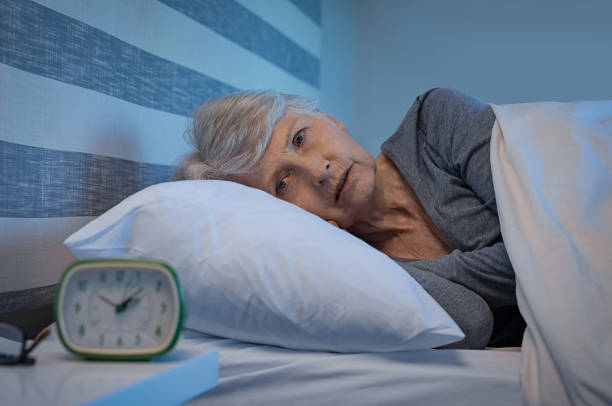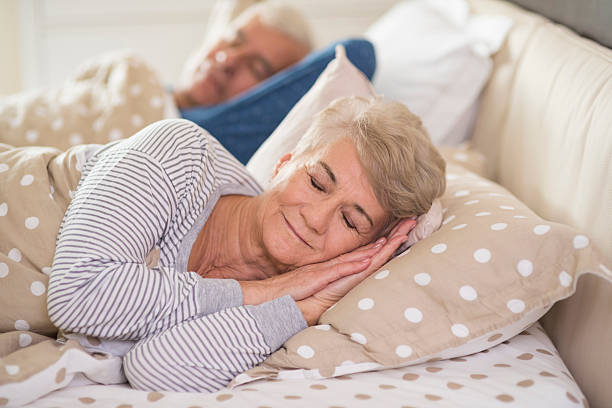Exploring the Mechanics of Sleep and Circadian Rhythms

Your sleep cycle is governed by an internal biological clock, dictating when you feel sleepy and when you’re awake and alert. This clock follows a 24-hour pattern called the circadian rhythm. The influence of light on your circadian rhythm is significant. While most people know that it’s easier to sleep when it’s dark, the link between light and sleep is complex.
Light plays a central role in regulating circadian rhythm, the body’s internal clock that signals when to be alert and when to rest. Light also affects the production of melatonin, an essential sleep-promoting hormone.
Understanding Melatonin
Melatonin is a crucial hormone for regulating sleep patterns and maintaining a healthy circadian rhythm. It is produced by the pineal gland in the brain and is influenced by the light-dark cycle.
Melatonin levels rise in the evening, signalling the body to prepare for sleep, and fall in the morning, promoting wakefulness. Melatonin plays a vital role in synchronizing various biological rhythms, including body temperature and hormone secretion.
Disruptions in melatonin production can lead to sleep disorders, depression, and metabolic imbalances. In modern society, exposure to artificial light, particularly blue light from screens, can interfere with melatonin production.
Maintaining good sleep hygiene, including managing light exposure, maintaining a consistent sleep schedule, and creating a conducive sleep environment, is essential for optimizing melatonin production and promoting better sleep quality.
Circadian Rhythms: The Internal Clocks that Govern Our Lives
Circadian rhythms are the internal biological clocks that regulate a wide range of physiological processes in living organisms, including humans. These rhythms are essentially 24-hour cycles that align our bodies with the day-night cycle of the Earth. Understanding circadian rhythms is crucial, especially in our fast-paced world, where these natural cycles are often disrupted.
The Master Clock: The Suprachiasmatic Nucleus (SCN)
The master clock that controls these rhythms is located in a part of the brain called the suprachiasmatic nucleus (SCN). The SCN is situated in the hypothalamus and receives signals directly from the eyes, responding to changes in light. When light decreases in the evening, the SCN triggers the production of melatonin, a hormone that promotes sleep. In contrast, when light increases in the morning, cortisol and other hormones that promote wakefulness and alertness are released.
The Influence of Circadian Rhythms on Our Bodies
Circadian rhythms influence a wide range of physiological processes in our bodies, including:
- Sleep-wake cycle
- Body temperature
- Hormone release
- Eating habits
- Digestion
- Mood
- Cognitive functions
Disruptions in Circadian Rhythms: The Consequences
Disruptions in circadian rhythms can lead to a range of health problems, including:
- Sleep disorders
- Metabolic issues
- Cardiovascular problems
- Mental health issues
These disruptions are particularly evident in shift workers and frequent travelers who often experience what is known as circadian rhythm disorder.
Maintaining Healthy Circadian Rhythms
To maintain healthy circadian rhythms, it’s essential to:
- Follow a regular sleep schedule
- Get exposure to natural light during the day
- Limit exposure to artificial light in the evening
- Engage in regular physical activity
Understanding the Vital Role of Sleep for Health and Well-being

Sleep serves as a crucial function, rejuvenating your body and ensuring you wake up feeling revitalized and alert. It is pivotal for maintaining overall health and supporting effective brain function.
Lack of adequate sleep hinders the brain’s ability to operate optimally, affecting concentration, clarity of thought, and memory processing.
Sleep Patterns and Aging
As individuals age, they may notice alterations in sleep quality and duration. These changes might be linked to reduction in melatonin production, a hormone that regulates circadian rhythms and is crucial for sleep induction, especially in response to darkness.
Helpful Ideas to improve sleep
- Establish a regular routine for going to bed and waking up
- Avoid Heavy meals at dinner time
- Minimise Screen time as it affects the sleeping pattern
- Avoiding Alcohol and Caffeine